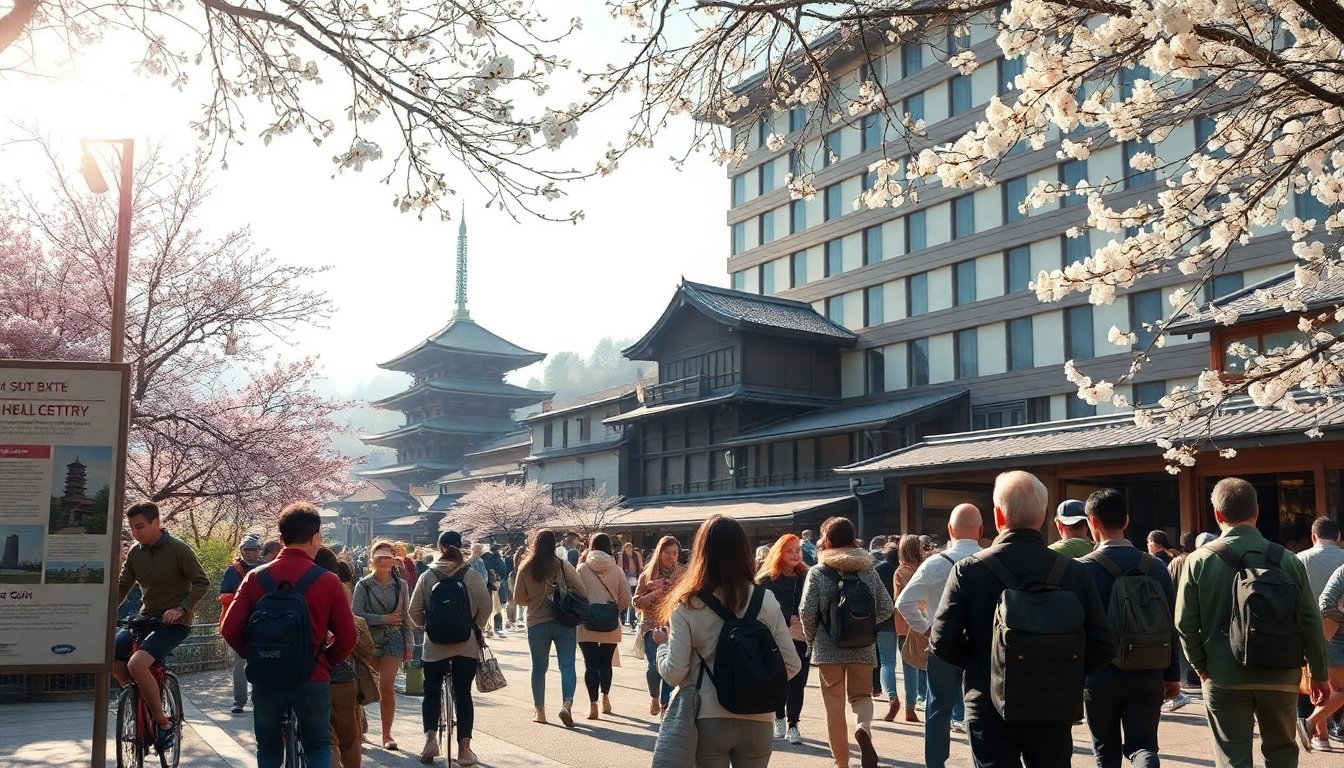Table of Contents
In an effort to address the challenges associated with overtourism, the city of Kyoto has implemented a new accommodation tax structure that redistributes financial responsibilities to visitors. This initiative aims to generate revenue for the city while promoting a sustainable approach to tourism that benefits both tourists and local residents.
The revised tax system introduces charges ranging from 200 yen for budget accommodations to 10,000 yen for luxury hotels exceeding 100,000 yen per night. This represents a significant increase from the previous maximum tax of 1,000 yen, highlighting the city’s commitment to addressing the increasing pressures on its cultural and natural resources.
The rationale behind the tax increase
City officials assert that visitors will play a vital role in funding essential countermeasures against overtourism. In a statement to the ministry, they stressed that “tourists also must bear the cost of countermeasures against overtourism.” This charge is not simply a financial burden; it embodies a broader strategy to ensure that tourism remains a viable revenue source while preserving the integrity of Kyoto’s unique environment.
Financial implications for travelers
The newly implemented tax is expected to significantly impact travelers, particularly those pursuing high-end experiences. With rates potentially reaching 10,000 yen, luxury visitors may find themselves contributing substantially more than under the previous tax regime. This shift raises concerns about the affordability of exclusive accommodations in Kyoto and how such costs may influence travel decisions.
Mayor Koji Matsui addressed these concerns during a press conference, reiterating the city’s vision for a sustainable tourism model. “Kyoto is going to use revenue from the accommodation tax to build a sustainable tourism city, which must be good for both tourists and Kyoto citizens,” he stated. This commitment to sustainability is anticipated to guide future developments in the city’s tourism policies.
Sustainability and community benefits
Central to this tax initiative is the objective of fostering a sustainable tourism environment. By reallocating funds from the new tax to support local communities and ecological preservation, Kyoto seeks to balance the economic benefits of tourism with the well-being of its residents. The revenue generated will be directed toward projects that enhance public infrastructure, protect cultural sites, and improve the overall visitor experience.
Addressing the overtourism crisis
Overtourism has become a pressing issue in numerous popular destinations, with Kyoto facing similar challenges. The surge in tourists has often strained local resources, resulting in environmental degradation and cultural dilution. By implementing this new tax, the city aims to alleviate some of these effects, ensuring that the influx of visitors does not overwhelm the delicate fabric of local life.
The revenue from the accommodation tax will be allocated to various strategies aimed at reducing the environmental impact of tourism. Potential efforts may include promoting alternative travel routes, enhancing public transportation, and investing in sustainable practices within the hospitality sector.
A step towards responsible tourism
Kyoto’s new accommodation tax signifies a paradigm shift in the city’s approach to tourism management. While high-end travelers may experience the financial implications of this adjustment, the broader consequences of the tax extend beyond mere revenue generation. It represents a commitment to establishing a tourism model that prioritizes sustainability and community welfare. As Kyoto embarks on this journey, the hope is that it will provide a framework for other destinations facing similar challenges.


